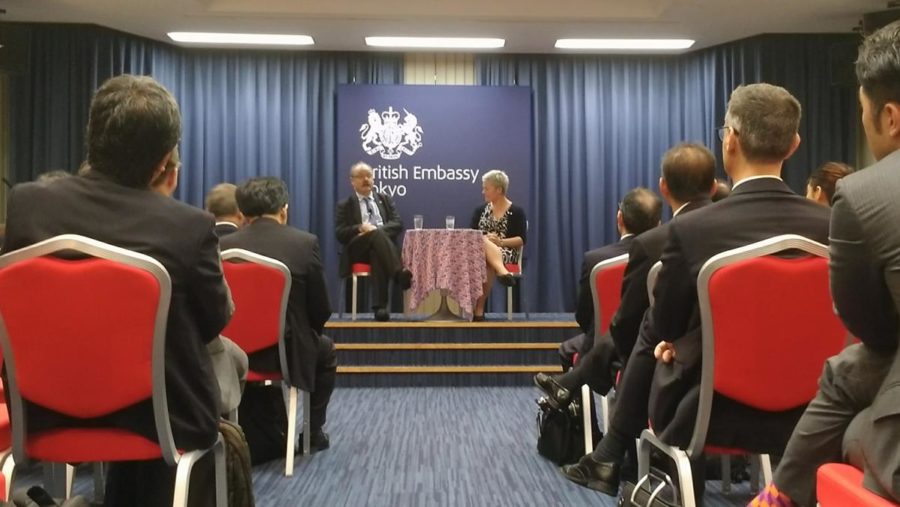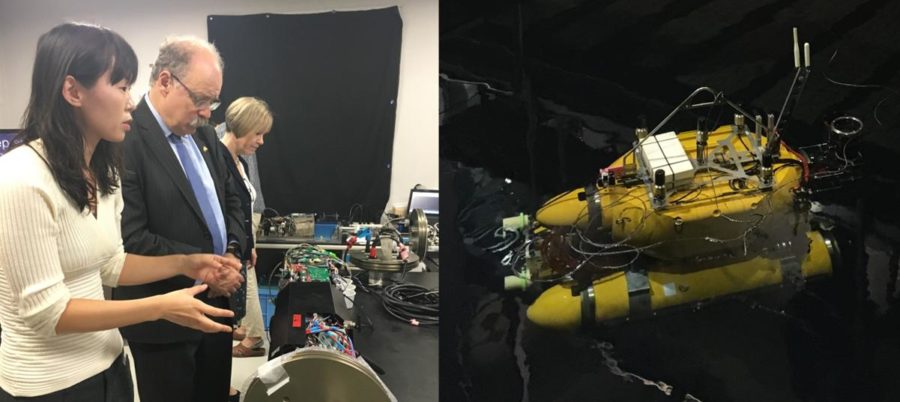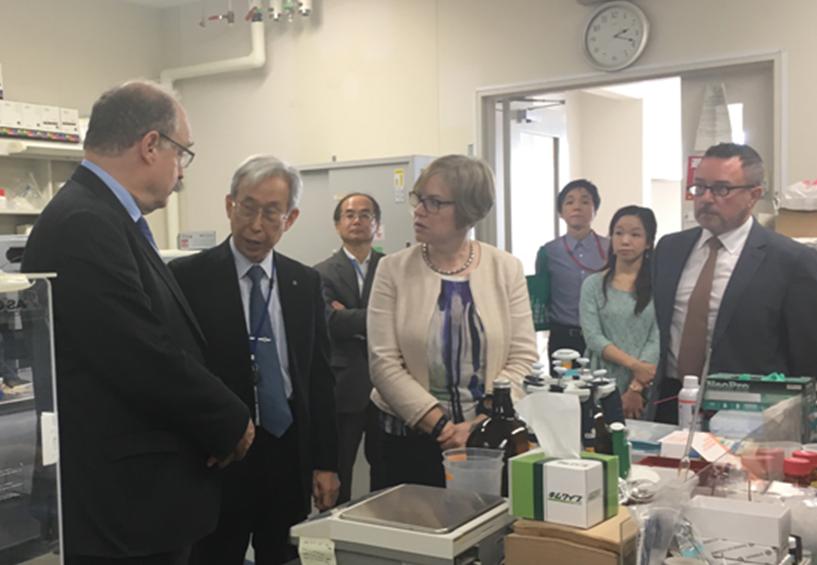2nd November 2017 Tokyo, Japan
Research without Barriers – a step-change in UK-Japan collaboration

Science is a global enterprise. The best researchers in the UK want to work with the best researchers across the globe. Japan is a very strong research nation – it is a country of world leading researchers and technologies that invests over 3.5% of GDP in R&D and has had more Nobel Prize winners since 2000 than any country other than the USA. Collaboration between researchers in the UK and Japan enables them to deliver significantly greater beneficial impact for the UK’s economy and society. However, to maximise this impact we need to reduce the coordination and funding barriers that can limit the extent and depth of researchers’ collaborations. That’s why this past August the UK and Japanese prime ministers agreed that we should negotiate a Lead Agency Agreement between the UK and Japan (See here).
What’s a Lead Agency Agreement? You can think of it as a bit like a trade deal for research collaboration – a way of dramatically lowering the barriers to jointly funded projects. At present if researchers from the UK and Japan would like funding to collaborate, each researcher needs to apply separately to their respective national funding agencies. This creates friction that hinders collaboration. Researchers need to find suitable calls for funding at the same time in both countries; and there is a “double jeopardy” risk that a proposal may be approved in one country but not in the other, leading to neither side proceeding. The consequence is that less international collaborations are pursued, and where researchers do try they face significant additional obstacles to securing funding and the scope of collaboration can be limited.
A Lead Agency Agreement can overcome these barriers by combining the funding application processes of the two countries for joint research projects into a single application to one funder, making them as simple as a UK-only or Japan-only application. Each country then funds its own half of each joint project. Basically it becomes as easy for a researcher in Bristol to work with a colleague in Kyushu as with someone in Sheffield.

In her visit to Japan in August, PM May agreed with her Japanese counterpart PM Abe that the UK and Japan would aim to establish a “Lead Agency Arrangement” between our research and innovation funding agencies to enable our researchers and businesses to collaborate more easily. At the beginning of October Sir Mark Walport, Chief Executive Designate of UK Research and Innovation,* visited Japan and began discussions with our key Japanese partners on a Lead Agency Agreement. These productive discussions showed there is a strong appetite on both sides to reach an Agreement quickly as it is a win-win for both countries.

Whilst in Japan Sir Mark attended the Science and Technology for Society Forum in Kyoto and met with numerous researchers from around the world. Sir Mark also had discussions at Riken and at Tokyo University, where he saw firsthand some of the existing collaborations between UK and Japanese researchers and heard about the enthusiasm for more and deeper collaborations from researchers from both countries.
The next step will be more detailed discussions between officials in the different UK and Japanese funding agencies and the team in SIN Japan will be supporting these discussions. As per the Prime Ministers’ joint declaration the intention is to have an agreement in place by the next UK-Japan Joint Committee on Science and Technology in late 2018. This should result in a step change in the number and depth of collaborations between UK and Japanese researchers. So watch this space!
* Note: UK Research and Innovation brings together the UK’s seven research councils, Innovate UK and Research England. It will begin operating from April 2018.
Plan to visit Japan as part of a business trip to explore advances in manufacturing and wondered what would you include in a week long agenda?